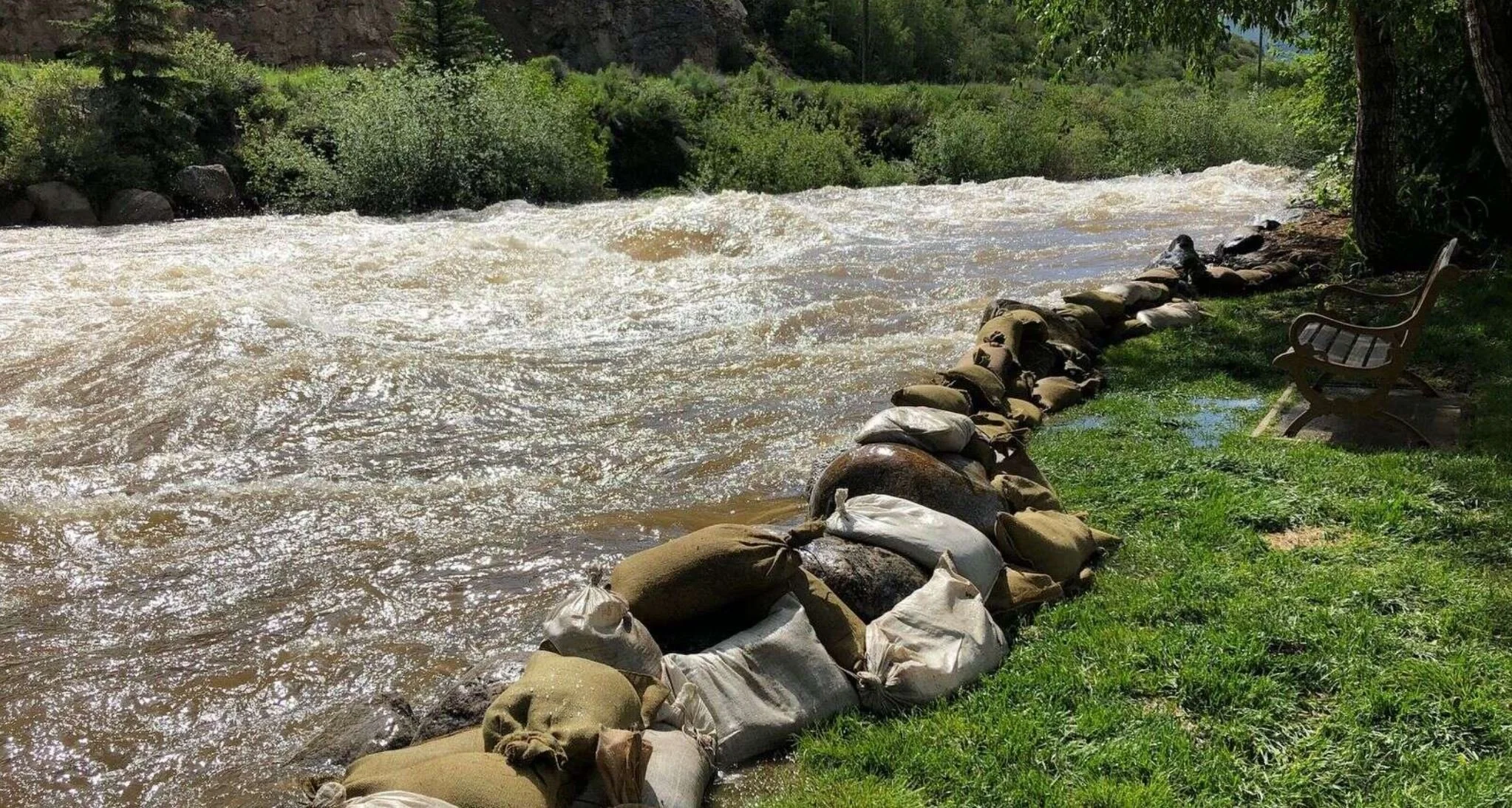Vail Valley residents urged to prepare for possible flooding
As days become longer and the weather turns warmer, Eagle County homeowners, renters and businesses are urged to think about flood insurance.
The Eagle County Office of Emergency Management, Greater Eagle Fire Protection District and Eagle River Fire Protection District encourage everyone to review their insurance needs before snowmelt and spring rains bring the potential for flooding. Spring runoff in Eagle County typically peaks between mid-May and mid-June; however, flood conditions can occur at any time with sustained warm temperatures.
Floods can happen anytime, anywhere, and without warning. What most people don’t know is that the damage from a flood is not covered under a standard homeowner’s insurance policy. A standard policy also does not cover mud flows; which are rivers of liquid and flowing mud. Flooding and mud flows can develop when water saturates the ground, such as from rapid snowmelt or heavy or long periods of rain. Even if you do not live near the water, flood insurance is a good idea to protect your home against events including broken water lines. Just one inch of water can cause over $25,000 of damage to your home.
What is flood insurance?
Flood insurance is a special policy that is federally backed by the National Flood Insurance Program and is available for homeowners, renters and businesses. The standard flood insurance policy pays for direct physical damage to insured property up to the replacement cost or actual cash value of actual damages or the policy limit of liability, whichever is less.
• Homeowners: You may purchase flood insurance covering up to $250,000 of flood damage to your home. A standard flood policy will cover structural damage, including damage to the furnace, water heater, air conditioner, floor surfaces (carpeting and tile) and debris clean-up. The contents of the home are not covered under a standard policy, but for an additional premium, you also may purchase flood coverage for up to $100,000 of damage to your personal property.
Coverage for basements, crawl spaces and ground-level enclosures on elevated homes is limited. If your home has these spaces, be sure to ask your insurance agent about any restrictions in your coverage.
• Renters: Flood is not covered under a basic renters’ insurance policy. Talk with your insurance agent about your flooding risks to decide if you need flood coverage for your belongings.
• Business owners: A flood insurance policy coverage will cover up to $500,000 on a non-residential building and up to $500,000 in contents. Contents-only policies are also available.
Plan ahead
It’s very important to plan ahead. A flood insurance policy normally will not go into effect until 30 days after you purchase the policy.
How much is it?
According to floodsmart.gov, the homeowners flood insurance premium for a preferred risk policy start at less than $325 per year. Premiums for flood insurance will vary depending on your risk level for a flood loss, the amount of coverage you choose, the type of coverage you need, as well as your deductible amount. You can normally choose different deductibles for building property and personal property coverage.
The deductibles will apply separately to building property and personal property claims. Your mortgage company can require that your deductible is no more than a certain amount.
How do I buy?
You can purchase flood insurance for your home or business regardless of whether the property is in a floodplain. Contact your insurance agent or company to find out if your community participates in the federal program. You can also go to floodsmart.gov to get more information about your flood risk.
For more information about flood insurance, go to floodsmart.gov. For more flood information including river gauges, floodplain mapping, and preparedness resources, go to Eagle County’s emergency management page.
For more information about renewing flood insurance policies or resolving an underpayment, policy holders can contact their insurance carriers or call the National Flood Insurance Program Call Center, 1-877-336-2627.

